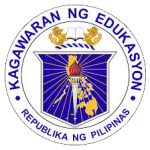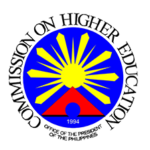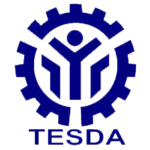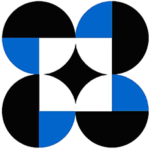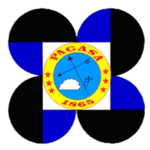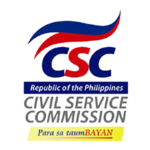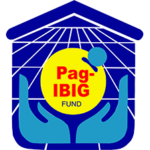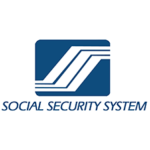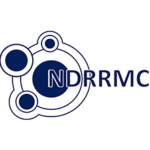ALTERNATIVE LEARNING SYSTEM PRORAM
Alternative Learning System or ALS
ALS Non-formal Education happens outside the classroom, community-based, usually conducted at community learning centers, barangay multi-purpose hall, libraries or at home, managed by ALS learning facilitators, such as mobile teachers, district ALS Coordinators, instructional managers at an agreed schedule and venue between the learners and facilitators.
the basis of ALS implementation
The 1987 Philippine Constitution provides for the recognition and promotion of other forms of education other than formal education. Article XIV, Section 2, Paragraph (1) declares that the State shall establish, maintain and support a complete, adequate and integrated system of education relevant to the needs of the people and society; and paragraph (4) concisely encourages non-formal, informal and indigenous learning systems as well as self-learning, independent and out-of-school study programs particularly those that respond to community needs.
The Governance Act for Basic Education otherwise known as the Republic Act 9155 stipulates the establishment of the Alternative Learning System (ALS) to provide out-of-school children, youth and adults population with basic education.
the target learners in the ALS
ALS is intended for out-of-school children, youth and adults who need basic and functional literacy skills, knowledge and values. These people are usually located in far-flung communities with no or limited access to formal schools. In 2008, it was estimated that 40.95 million or 45% of the total Philippine population did not complete basic education. This population is considered the target groups of the alternative learning system. The marginalized learners consists of street children, indigenous peoples, farmers, fisherfolks, women, adolescents, solo parents, children in conflict areas not reached by the formal school system, rebel returnees, and others.
ALS learning intervention
The learning facilitator (Facilitator, Instructional Manager, ALS Mobile Teacher, District ALS Coordinator) goes to a sitio or barangay with Functional Literacy Test and a set of learning materials to conduct learning sessions until such time that the learners have become literate before going to another sitio or barangay. However, depending on the need of the learners, the learning facilitator goes back to a sitio or barangay for visitation and follow-up.
Most of the time, instead of the learners going to the Community Learning Center, the learning facilitator brings the learning materials to the learners to help them acquire basic and or functional literacy skills.
ALS programs are delivered in various modes such as face-to-face, radio-based, eSkwela/computer-based or independent learning.
BSP SCHOOL PROGRAMS IN FEES- MARCELO GREEN
With the philosophy of “Learning by doing”, the scouting program of the Boy Scouts of the Philippines (BSP) has adopted a form of experiential learning where young boys are encouraged to have first-hand exposures to activities aimed to develop their skills and attitude, thus, putting into practice the theoretical knowledge they were taught. This is what we refer to as the Scout Method. With the assistance of their peers and adult volunteers, students in the patrol or crew can actively engage with the process and personally learn from their experiences.
In Fourth Estate Elementary School-Marcelo Green (FEES-MG), three sectional programs are offered. These were ladderized and progressive non-formal activities and programs which were formed with the main objectives of developing basic skill sets in these young children and molding them to become responsible citizens. With the passing down of proper values and essential skills to these boys and girls, the Boy Scouts of the Philippines is one with school in its goals and vision for our future leaders.
THE KID SCOUTING PROGRAM
It is otherwise known as the ‘Kabataang Imumulat Diwa” in which young boys aged four (4) to six (6) years are introduced to their journey as boy scouts. This continuing program aims for the holistic growth in ideals and emphasizes useful skills that youngsters will enjoy doing.
THE KAB SCOUTING PROGRAM
The KAB Scouting Program or the ‘Kabataang Alay sa Bayan’ is for young boys aged six (6) to nine (9) years old. It offers family-centered activities which are closely supervised by both the parents and the Kawan Leaders. This program entails simple skills and group activities focused on three important things for young boys: action, adventure, and fun.
THE BOY SCOUTING PROGRAM
For the older boys aged ten (10) to twelve (12) years old, a service and outdoor-centered program demonstrates the value of teamwork and leadership. Their potentials and the skills are further honed to contribute to the community and not just for personal interests.
NATIONWIDE SCHOOL MAINTENANCE WEEK "BRIGADA ESKWELA"
Brigada Eskwela is a nationwide school maintenance week where partnerships and camaraderie among the school, its stakeholders, and other volunteers are strengthened. They work together to prepare the school for the incursion of pupils when the school year begins.
Fourth Estate Elementary School – Marcelo Green will be steering “ Brigada Eskwela ‘21” with the theme “Bayanihan Para sa Paaralan” for school year 2021-2022 starting August 3, 2021. This year’s focus for Brigada Eskwela is to gather resources for health and sanitation, learning materials, gadgets, and mobile data load for our most deserving learners.
With our collaborative effort, we will achieve the optimal support that our learners need in continuing quality education amidst pandemic.
CONNECT WITH US
- mgaes.paque@deped.gov.ph
- (02) 889 0900
- @feesmarcelogreen
- @feesmarcelogreen























